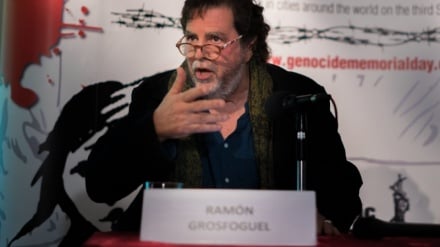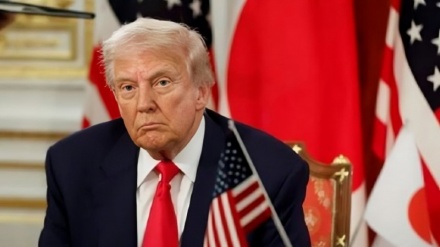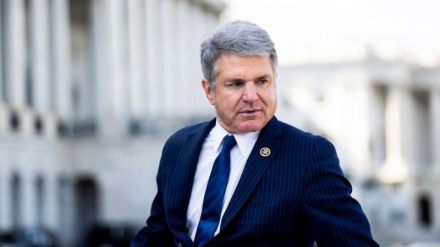It’s becoming late for manipulated UN
Saudi Arabia, a nation that continues year after year to spend more money on its military adventure in Yemen than on programs of social uplift at home is approaching spiritual doom. Any doubters should ask Amnesty International.
In yet another scathing report, Amnesty International says Saudi Arabia and its militant proxy forces could be committing war crimes in Yemen by interfering with the flow of humanitarian supplies into the impoverished country.
The UK-based human rights body says the Saudi-led militant proxy forces deliberately stop the aid-laden ships to inspect their cargoes even though it is the United Nations which is mandated to do so. They divert the ships to the Yemeni ports which are controlled by the Saudi-led coalition of invaders whom they work for, or delay them for further inspection sometimes for a month or more.
Saudi Arabia and its regional allies together with the United States, Britain and France have been waging a war on the Arab world’s already most impoverished country to restore the former Saudi-allied officials. Yemen’s Health Ministry says more than 600,000 people have either been martyred or injured during the three-year-old invasion. The combination of the war and blockade has brought the country close to the edge of famine. Nor is that all.
The Saudi-led alliance has been waging a full-on battle since June 13 to occupy the port city of Hodeidah as well, which receives the bulk of the country’s food and fuel supplies. Yemen’s Ansarullah movement which has been defending the country against the invaders together with its allies has, however, refused to give up the port. Sadly, that hasn’t ended the worst man-made humanitarian catastrophe in the world. And this is not just about Hodeidah. It’s about the impact of the Saudi-led war on the entire Yemeni civilian population.
The situation is so desperate that British charity Oxfam has also sounded a stern warning. Oxfam is forecasting and has been saying that it will be huge catastrophe if full fighting erupts in Hodeidah city and the port becomes non-functional.
In the prevailing environment, the International Criminal Court should step in to counter Saudi crimes, because the prosecutor of the court has enormous discretion in going after war crimes. Saudis may evade justice but in the ICC eyes they are guilty of egregious war crimes, of plunder and, finally, of murder, including the murder of thousands of young Yemenis - whose future they stole in collaboration with American-British-French allies.
Speaking of the West, the US, British and French governments cannot claim to be a champion of human rights while arming the world’s worst offenders. The problem is that they also want the sweet multibillion-dollar arms deals, so they cut corners on human rights. They broker and approve deals for their arms companies and they know their weapons have been used in Yemen - where they are directly involved in the regime-change campaign.
The West’s arms trade in the Middle East goes beyond the Saudi deal. Since the beginning of the war on Yemen, which is now in its fourth year, the US, Britain and France have also made millions selling arms to Bahrain, which has crushed political dissent at home while aiding Saudi efforts abroad, and have exported an assortment of weapons and military equipment to the United Arab Emirates, which human rights organizations have criticized for numerous abuses within its own borders and in Yemen.
What is different about Yemen is that the Saudis’ biggest supporters and the main states preventing the United Nations from taking decisive action are also the US, Britain and France, which are members of the Security Council with veto powers. They have strong economic and security relations with Riyadh. They see Saudi Arabia as a lucrative market for their goods, and also are dependent on Saudi oil. The Persian Gulf country is also a major customer of arms from the US and UK.
As is, the Saudi-led coalition has been bombing schools, markets, hospitals and other civilian targets. Its Western allies have also been accused of major violations, which the UN should also probe. Without full political backing, a commission of inquiry will likely be fruitless. Many members from the UN commission of inquiry in Yemen have been forced to resign, stating that lack of political support from the Security Council made the task impossible.
Realizing these challenges, and the fact that the dynamics at the UN have posed dramatic consequences into the Yemen conflict, the UN should consider how first to push Saudi Arabia and its Western allies to demonstrate a political desire in ending the Yemen war. To end the war and stabilize the country requires a well-thought out approach that balances the need for security with justice for those affected, and calling on the occupying forces to withdraw. This is no small task, but the first step is convincing Saudi Arabia and its partners this is in their best interests.
However, the world community continues to ignore the ongoing US-backed, Saudi-led war on Yemen and that’s the most morally wrong thing the world could do. Basically, if the United Nations doesn’t act to end the pointless conflict, then no other world body can act, and the more international bodies actively do nothing, the worse the humanitarian situation is going to be in the poorest country in the Arab world.
A healthy world isn't one that basks in ignorance and indifference, that glorifies those who avoid taking a stand against regime-change wars and occupation, and fosters the gaping black-hole of absence of international law. Many UN member states are shamelessly making the choice to ignore the war and do nothing. This business-as-usual mentality as a whole is one where many believe that accommodating themselves to rife injustice is a way to look after themselves. But in fact, adjusting to injustice is unhealthy for both the UN and the member states.
Sadly, those who have power are taking the lead in doing nothing – even taking a direct role in the conflict. And those who have no power struggle to unite to end the war. Member states have met repeatedly to discuss ways to end the conflict, but failed to do anything. A big part of that is that those who have economic and political power are governing for themselves and their allies, rather than for humanity.
Here, ending the war is someone else's responsibility, and while the UN Security Council members are inactive, so are the rest of the UN agencies, such as the Human Rights Council. The daunting abyss between what is wrong with the Council and what its officials think they are able to do about it, is a result of the economic and political pressures by certain member states not allowing even measly scraps of power to trickle down to a resolution that could possibly stop the conflict and hold to account those who started this whole mess in the first place. Encumbered with powerful American-Saudi-Israeli lobbies, the Human Rights Council puts up with injustice because it believes that something better isn't possible and that it is powerless.
At the same time, the prevailing mentality at the Security Council is that the Middle East is there for the US and its allies to invade, to be occupied, and to be used and take its energy. The culture of indifference negates the idea that the world is in fact Council’s business and it should have a mutual relationship with both its permanent members and with those people who help ensure international peace and security. Instead, there is a sense of entitlement, especially to veto any resolution that dares to confront them.
It is this kind of mentality and injustice that has normalized suffering, death and destruction in Yemen. In consequence, humanitarian crisis has become natural phenomenon. Unlike an earthquake which surprises unlucky victims and is framed as a tragedy by the Western media, the suffering, the death and the hunger of millions of people in the besieged country, particularly in the port city of Hodeidah, is not a tragedy. Instead, it is seen as something that is basically deserved and normal for in the end “there is freedom and democracy to be had.” Ironically, it is the US-backed, Saudi-led airstrikes targeting the defenseless civilians that is right and there is little the UN can do about it, whereas targeting the civilian population is not right. It is a conscious murderous policy.
The fate of millions of Yemeni civilians is up in the air amid the Saudi-led invasion of the nation’s main aid port, Hodeidah. Fighting is now a more immediate threat to the civilians living in the city itself. Hodeidah is held by the Ansarullah resistance fighters, and subsequently the lone source of food and medical aid for 8.4 million people living in pro-Ansarullah northern Yemen. The UN has warned the fall of the city could precipitate a famine, and has been in talks trying to prevent this invasion, but only talks and no action.
The International Rescue Committee has dismissed Saudi coalition “relief” plan for Yemen as a public relations gimmick. The “relief” plan announced by Saudi Arabia and the United Arab Emirates to protect civilians living in Hodeidah as they attack the port city is a publicity stunt by the Saudi-led coalition meant to draw attention away from the undue suffering the attack is causing. Attacking Hodeidah won’t bring Yemen’s population relief, nor will seizing the port. Here, the severe absence of action by the UN is dangerous both to those directly affected by the Saudi-made tragedy and famine, as well as to those who are supporting it, mainly the United States, Britain and France. The biggest, most obvious consequence is that many more civilians will die and the West can and will be held to account for its complicity.
The disturbing truth is that: The US and its European partners are accountable for much of the mayhem. They may wish to omit that part of the debate altogether, but facts will not simply disappear when ignored. Western leaders should honestly confront the question: what are the reasons for their support of a conflict that has only destroyed the lives of millions of people?
The entire West has a responsibility to stop this mayhem – in collaboration with the UN. It’s partly due to their shameless actions – and inactions - that people are suffering. The US, Britain and France tell the UN they are far away and not responsible, but they are all taking part in the fighting. They are all part of the problem.
Until this fact is recognized by Western people to pressure their governments, and until the UN does something about it, this man-made humanitarian crisis, this forgotten conflict will continue, raising regional tensions and contributing to the tragic loss of lives of many more people, whose only hope is merely to survive and of course to determine their own fate by themselves.
(Courtesy of FNA)
EA


